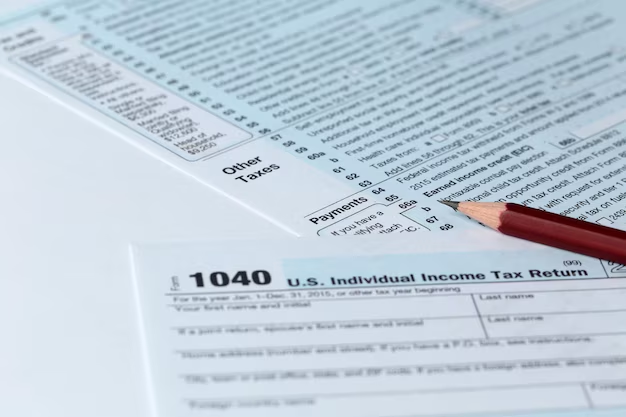Navigating Virginia's State Tax Landscape: What You Need to Know
When it comes to understanding taxes, particularly state taxes, the questions can seem never-ending. Among these, one often asked is, "Does Virginia have state tax?" Whether you're moving to the Commonwealth or are a long-time resident, understanding your tax obligations is crucial for financial planning and compliance. This guide aims to provide a comprehensive overview of Virginia's state taxes, breaking down complex information into digestible sections that will leave you confident and informed.
A Resident’s Primer: Virginia State Taxes
Yes, Virginia does have a state tax structure that encompasses both income tax and sales tax, among others. Here's a quick overview that lays the foundation:
- Income Tax: Virginia has a progressive income tax system with rates ranging from 2% to 5.75% based on income brackets.
- Sales Tax: The state imposes a general sales tax of 5.3%, but this can vary slightly depending on local taxes.
- Property Tax: Although managed at a local level, property tax rates are generally moderate compared to other states.
Let’s dive deeper into each of these to understand how they impact residents and businesses alike.
Virginia Income Tax: What You Need to Pay
Understanding Tax Brackets
Virginia uses a progressive income tax system, meaning tax rates increase as income increases. Here’s a breakdown of the state’s tax brackets:
- 2% on the first $3,000 of taxable income
- 3% on taxable income between $3,001 and $5,000
- 5% on taxable income between $5,001 and $17,000
- 5.75% on taxable income over $17,000
For residents, all sources of income are subject to tax, unless otherwise exempt. Non-residents with Virginia-sourced income must also pay.
Filing Requirements
If your income exceeds the standard deduction, you're required to file a state tax return. For 2023, the standard deductions are:
- $4,500 for single filers
- $9,000 for joint filers
👩💼 Tax Filing Tip: Always consider consulting with a tax professional, especially if you have complex financial situations or are new to Virginia.
Sales Tax in Virginia: What’s the Cost at Checkout?
When shopping or dining in Virginia, you’re subject to a sales tax. Here’s how it breaks down:
State vs. Local Sales Tax
The base sales tax rate in Virginia stands at 5.3%, but municipalities can impose additional local taxes. For example, in Northern Virginia and certain other areas, the combined rate can be as high as 6% or more.
Exemptions and Reductions
Some items are exempt or subject to reduced tax rates, such as:
- Prescription medications: Exempt from sales tax
- Certain food items: Qualify for a reduced rate of 2.5%
This is crucial for budget-conscious shoppers eager to maximize savings.
Property Taxes: Assessing the Value
Property taxes in Virginia aren't directly administered by the state but by counties and cities. The rates tend to be moderate and can vary widely depending on the location.
How Are Property Taxes Determined?
Taxes are assessed based on the property’s value, which is determined through regular appraisals. Local governments often provide an online tool for property owners to check assessments.
📝 Quick Property Tax Tip: Check if your county offers exemptions or relief programs for seniors, veterans, or other groups.
Navigating Business Taxes in Virginia
Corporate Income Tax
Virginia offers a competitive corporate income tax rate of 6%, which applies to corporations operating within the state. This is a flat rate, making it straightforward for businesses to calculate potential liabilities.
Sales and Use Tax for Businesses
Businesses selling tangible goods need to collect sales tax. Additionally, if they purchase goods out of state for use in Virginia, they may be subject to a use tax.
Additional Taxes and Considerations
Beyond the primary taxes, Virginia has several additional tax types:
- Fuel Tax: Levied on gasoline and diesel, this tax funds infrastructure projects.
- Tobacco and Alcohol Taxes: These are excise taxes applied to specific products.
Understanding these taxes can be vital for both consumers and business owners who deal with these products.
Practical Consumer Tips for Virginia Taxes
Here we compile essential takeaways to help you better manage your tax-related responsibilities:
- Maintain Records 📂: Keep detailed records of all income and expenditures. This ensures accurate filing and maximizes deductions.
- Utilize E-Filing 💻: Virginia encourages e-filing state tax returns, which is faster and often more reliable.
- Understand Deadlines 🗓️: State taxes are usually due on May 1st. Mark your calendar to avoid late penalties.
- Explore Deductions and Credits 🧐: Look for tax credits and deductions unique to Virginia, such as the Low Income Tax Credit.
- Stay Updated ⚠️: Tax laws can change, so keep abreast of any new legislation that might affect your tax obligations.
Reflecting on Virginia’s Tax Environment
Virginia’s tax structure is a blend of straightforward and nuanced components, tailored to meet both resident and state needs. By staying informed and proactive, residents and businesses can smoothly navigate these obligations, ensuring compliance while making the most of available benefits.
In understanding Virginia's state taxes, you'll not only comply with local laws but also empower yourself financially, setting the stage for a stable and prosperous future in the Commonwealth. Whether new to the area or a seasoned local, being informed is the first step toward savvy financial decision-making.

Related Topics
- Am I Tax Exempt
- Are 401k Contributions Tax Deductible
- Are 529 Plan Contributions Tax Deductible
- Are Attorney Fees Tax Deductible
- Are Campaign Contributions Tax Deductible
- Are Charitable Donations Tax Deductible
- Are Church Donations Tax Deductible
- Are Churches Tax Exempt
- Are Closing Costs Tax Deductible
- Are Contributions To 529 Plans Tax Deductible
